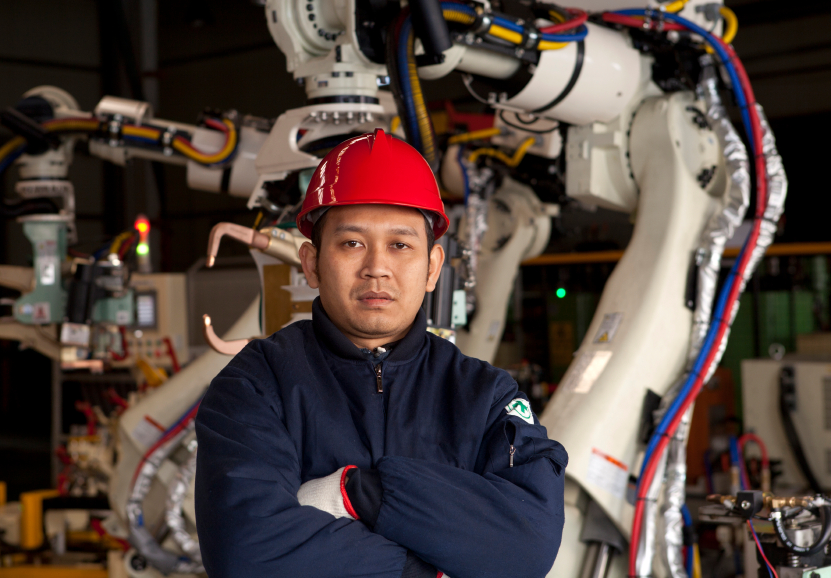Automation is becoming more commonplace in factories today. This prompts many workers and analysts to wonder if this automation will come to replace workers entirely. Research being conducted at Purdue University points to automation as unable to replace humans completely.
David Hummels, a professor of economics at Purdue University, says humans still have a unique advantage that machines may never be able to emulate: our ability to respond to other humans.
“We have evolved over 100,000 years to be exquisitely perceptive to visual and aural cues from other people around us, which is an important skill that machines may never be able to match,” Hummels says.
It’s true that robots and other forms of automation are continually improving, becoming better at certain tasks or increasing the number of tasks that they are able to perform. However, there are some circumstances where they are both more and less well-suited for tasks once performed by humans.
Hummels says that machines will be better than people at an increasing number of tasks. People, however, still have a large advantage when interacting with other people, because it’s a trait that has been fine-tuned through evolution.
- Men, who have two distinct disadvantages: Many men have historically been employed to do jobs that require strength, and robots and other forms of automation will replace many of these jobs because they are stronger and never get tired.
- Second, many jobs in the future will require interpersonal skills such as empathy, caring and even affection. Occupations that use these skills are dominated by women. If men are unable or unwilling to improve interpersonal skills they will find it hard to compete in the job market.
- People without advanced degrees: As repetitive and physical jobs are replaced by automation, more emphasis will be placed on people who can solve problems and develop and market new products, Hummels says. Many of these types of jobs require a high level of cognitive ability and skill sets developed while pursuing college and advanced degrees.
- People with repetitive jobs: “A robot can install a windshield in a car factory because it does precisely the same thing over and over in an environment that never changes,” Hummel says. “Robots will not be used to replace broken windshields at auto shops because too much about the environment (the type of car, the condition of the broken window) changes every time.”
- “People who do stand-alone tasks: “If your job combines sensorimotor skills or human interaction with other tasks that a computer/robot might do, you might still be well-protected if it’s hard to unbundle the former from the latter. (Think of the pediatrician),” Hummels says.
- People with poor interpersonal skills: As robots and computers replace many back-room jobs, humans will retain advantages in interacting with the public and working with colleagues on teams. This will place more emphasis on hiring people who are both technically proficient and have good interpersonal skills.
While automation is making its way into more factory jobs, the robots being installed are not going to be able to take over every task that humans perform. Where decision-making or human interaction is required, humans still have the upper hand over robots and automation.
Read more at Scientific computing.

